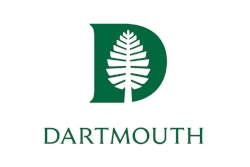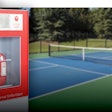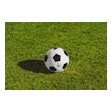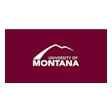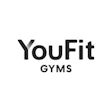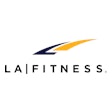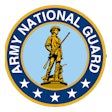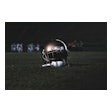The national #MeToo movement seems like a sudden wildfire, but within the Olympic world sexual abuse has been a decades-long slow burning fuse. Sexual abuse of Olympic athletes, unfortunately, is neither new nor surprising for those of us who have seen and experienced it firsthand during our athletic and professional careers. It's an issue that has only been exacerbated by U.S. Olympic Committee and National Sports Governing Bodies policies that are designed to deflect from civil liability.
 Nancy Hogshead-Makar, a 1984 Olympic gold medalist swimmer, is the chief executive officer of Champion Women, an organization that provides legal advocacy for girls and women in sport.
Nancy Hogshead-Makar, a 1984 Olympic gold medalist swimmer, is the chief executive officer of Champion Women, an organization that provides legal advocacy for girls and women in sport.
Most readers can probably name several "romances" between coaches and their athletes, relationships that all sports entities agree are an obvious violation of coaching ethics. Why? These coaches — overwhelmingly men — have been granted Weinstein-level power over their athletes: they control playing time, scholarships, skills training, access to more-elite coaches, even a berth on the Olympic team. Power of this magnitude is easily abused and fosters a sickness that can turn victims into pariahs.
The stories repeat themselves. A coach abuses a young female athlete, and when it is discovered, team members rally to protect the popular coach, upon whom they've hung their hopes of athletic success. The problem becomes the victim, who is pressured to leave while the coach remains.
In another common scenario, the abuse is discovered, but the family wants to shield the victim from the shame of exposure or police involvement, and the club doesn't want the bad PR. So the coach is allowed to quietly leave the club, only to be hired again to repeat the abuse. These patterns are far too familiar, and they create a cloak of protection for the coach to continue his abuse without consequences.
This kind of abuse has been part of the Olympics since long before the #MeToo floodgates opened. And it's why one rule needs to become the cultural and legal norm of conduct in sports: Coaches shall not have romantic or sexual relationships with the athletes they coach, regardless of age or consent. This is a simple rule, one that can be clearly understood by every coach, child, athlete, parent, administrator and club owner. Similar prohibitions apply to doctors, lawyers, counselors, religious leaders, teachers, prison guards, family members and others in positions of power. Substitute any position of power for "coach" and the rule holds true.
Why hasn't the obvious norm taken hold? Because Olympic sport executives, administrators, and their legal counsel — despite knowing the problem is severe — made the conscious, deliberate decision to deny their responsibility for addressing sexual abuse in sport.
This has limited their exposure to civil liability for sexual abuse in at least three ways. First, the USOC and NGBs balked at training their members on prevention techniques or taking action against abusive coaches. They claimed in court that even when they knew about a dangerous coach, that protecting kids from predators just wasn't their job. Second, when NGBs told victims that the Sports Act prevented them from removing abusive coaches, the USOC made no efforts to amend the statute to more effectively protect their athletes. Third, even when the USOC and their NGBs did strip an abusive coach's membership, they rarely published lists of offenders for other clubs and schools to find, and oftentimes required victims to stay silent as to the decisions rendered.
Champion Women
Research concluded in December by Champion Women, the organization I started to provide legal advocacy for girls and women in sports, found that most NGBs are ill-equipped to address SafeSport issues, including emotional, physical and sexual abuse.
Led by research assistant Erika Sexson, we called each of the 47 NGBs for their SafeSport policies. We looked online at reporting procedures for SafeSport violations. We also looked at those responsible for addressing SafeSport violations and tried to identify their skill-set. For instance, did they have experience in dispute-resolution within a business or the criminal justice system? Had they worked as a victim's advocate or defended those accused of sexual assault? Did they have the special training required to interview a child?
The result of our research was disheartening. A handful of NGBs provided easy-to-find SafeSport information on their websites, but most NGB sites required advanced researching skills to find any information, or it didn't exist at all. Phone calls were answered by people who gave false information, such as "SafeSport only applies during competitions," and the staff frequently did not know who their SafeSport contact was.
Another area of concern was the people hired by the Olympic movement; more often than not, they were hired from within the athletics industry, such as marketing or coaching education. Most of them did not have the skill set to conduct thorough investigations and fair hearings that could withstand the inevitable scrutiny.
In addition, Champion Women's research found that NGBs differed considerably in their sophistication and transparency. Out of 47 NGBs, only 11 made their lists of banned or suspended coaches public. Most often, the NGB would only give information on coaching discipline to members of their NGB. Rick Butler, coach of USA Volleyball, who was found to have sexually abused three of his underage athletes, went on to coach in another league, the Amateur Athletic Union, whose clubs are not members of USA Volleyball. These hiring committees should have easy access to the dangers that USA Volleyball found.
Other times the NGB would only confirm or deny whether a particular coach had been banned. Why not report publicly, so that other schools, sports entities and youth organizations could steer clear? Again, NGBs were more focused on legal liability from a potential defamation lawsuit by a banned coach than they were about protecting athletes from predatory coaches.
A new bill
Senators Dianne Feinstein and John Thune have been collaborating on a bill in the Commerce Committee that will authorize the U.S. Center for SafeSport to adjudicate reports of sexual abuse as a separate entity from the USOC and NGBs. The bipartisan bill, S. 534, has passed the Senate, and is awaiting passage in the House.
It will provide operating funds for SafeSport and will require SafeSport to maintain an office and develop training, oversight practices, policies, and procedures to prevent the abuse, including emotional, physical and sexual abuse. SafeSport is required to take reports of sexual abuse, investigate and resolve them.
Importantly, the bill requires that all members of sports organizations are "mandatory reporters." That is, members will be legally required to report sexual abuse to law enforcement officials or to their local child protective services, so long as the sports organization participates in interstate competitions. The mandatory reporting provision will apply to more sports organizations than just the Olympic movement; it includes entities such as the AAU, as well as travel teams.
The bill provides SafeSport, the USOC and NGBs with immunity from lawsuits by those determined by SafeSport to have violated their ethics policies. Unless SafeSport operates with "actual malice" — a legal term akin to malicious prosecution — someone that SafeSport has determined to have violated ethical policies cannot sue SafeSport for defamation. NGBs will no longer be able to be bullied into allowing sexual predators back into the Olympic fold. It should also make it easier to publish lists of those banned from the Olympic movement.
One of my favorite lines to deliver in a motivational speech is:
"The Olympics represent the best in all of us; they show us what we, as people, are capable of achieving. To jump that high, swim that fast, spin with unimaginable grace... it takes our collective expertise to produce that performance, and witnessing that level of excellence moves the soul. We marvel at the absolute dedication required to achieve that excellence, integrity and courage. We, collectively, are a part of that."
Opening SafeSport and championing a new federal law that provides legal protections for athletes is step one; it is not the end of the #MeToo movement in Olympic sports. The push to change an unhealthy culture that has given coaches unlimited power will require that same type of dedication over many years, but it is a worthy endeavor.
The U.S. Center for SafeSport OpensIt has taken almost three years and more withering criticism, but in March 2017, the U.S. Center for SafeSport opened. Athletes can now confidentially report sexual abuse to SafeSport. There are no statutes of limitation, so even if someone in authority should be removed from the sport, it's never too late. Other important provisions include: • USOC and NGB membership carry expectations of adherence to SafeSport's policies and investigations, similar to the United States Anti-Doping Agency. • All adults in the USOC and NGBs are required to report child sex abuse to the authorities, whether or not the particular state requires the person to report such an act. • Investigations can be initiated by third parties. A victim willing to testify against her/his abuser is not required to conduct an investigation; other coaches and teammates may have ample evidence of abuse. • SafeSport investigations will continue even when the criminal justice system decides not to prosecute or does not have enough evidence to convict. • The names of all child sex abuse victims or adult sexual harassment and rape victims are protected by a rape shield law. • The SafeSport Office, the USOC and NGB defense counsel are separated by an ethical firewall when receiving and investigating reports of abuse. |
This article originally appeared in the January|February 2018 issue of Athletic Business with the title "Addressing sexual abuse in club and Olympic sports." Athletic Business is a free magazine for professionals in the athletic, fitness and recreation industry. Click here to subscribe.















